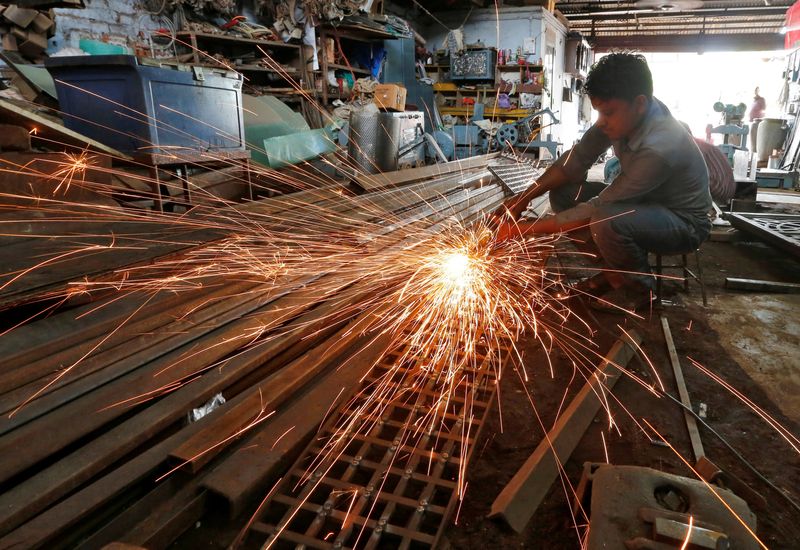India’s services growth slows a touch but still solid, PMI shows

By Shaloo Shrivastava
BENGALURU (Reuters) – Activity in India’s dominant services sector remained upbeat in July on robust demand, leading to strong job creation, despite elevated cost pressures pushing up selling-price inflation to a seven-year high, a survey showed.
The HSBC final India Services Purchasing Managers’ Index, compiled by S&P Global, fell marginally to 60.3 in July from 60.5 in June and was considerably below a preliminary estimate of 61.1.
However, the overall pace of expansion was sharp and the index remained above the 50-mark that separates contraction from expansion for the 36th straight month.
It was the longest streak of expansion since the inception of the series in December 2005.
“Service sector activity rose at a slightly slower pace in July, with new business increasing further, primarily driven by domestic demand. Looking ahead, services firms remained optimistic about the outlook for year-ahead,” noted Pranjul Bhandari, chief India economist at HSBC.
Strong demand and favourable conditions edged up the new business sub-index. International demand, though increasing at a slower pace than June’s fastest rise in a decade, also indicated robust demand from abroad.
The new export business gauge was the third-highest since the sub-index was added to the survey in September 2014. The first and second highest were also recorded this year in May and June, respectively.
The solid demand outlook drove a rebound in expectations for activity in the next 12 months, lifting the future activity sub-index from an 11-month low set in June.
That led to another strong level of hiring, despite easing mildly from June’s 22-month high. Companies hired extra workers to meet the expansion.
Generating jobs for its young population has been one of the biggest challenges for the Indian government and the services sector has been creating employment, albeit at a mild pace, for more than two years.
To address the issue, the government plans to allocate 2 trillion rupees ($24 billion) over the next five years, the finance minister announced in a recent budget.
Higher raw material and labour costs added to expenses faced by service providers last month and they increased their prices at a faster pace.
Selling price inflation rose significantly last month, and was the joint-highest in seven years as firms passed on costs to clients, the survey showed.
Data for June released last month showed the nation’s annual retail inflation rose for the first time since December, to 5.08%, above the Reserve Bank of India’s (RBI) medium-term target of 4.00%.
The RBI is expected to ease its repo rate by 25 basis points next quarter to 6.25%, a Reuters survey taken last week showed. However, there was no clear majority on where the interest rate would end this year.

A manufacturing index released last week dipped modestly to 58.1 in June, which combined with the small retreat in the services reading, brought the overall Composite PMI down to 60.7 from June’s 60.9.
($1 = 83.7390 Indian rupees)






